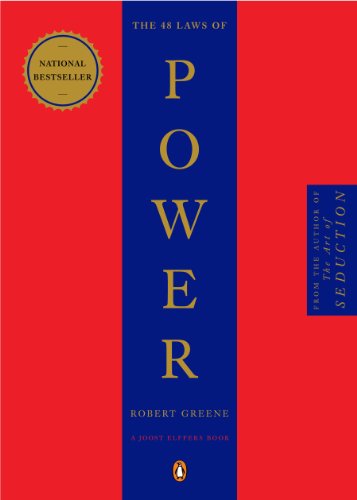

This article is an excerpt from the Shortform summary of "The 48 Laws of Power" by Robert Greene. Shortform has the world's best summaries of books you should be reading.
Like this article? Sign up for a free trial here .
Overview of Law #14: Pose as a Friend, Work as a Spy
Collecting information through spying is essential to wielding power. When you know your opponent’s secrets, you can predict his behavior and control him. You can enlist spies to gather intelligence for you, but it’s better to be a spy yourself. Adopt a friendly manner and you’ll get people to spill their plans and weaknesses. Pose as a Friend, Work as a Spy.
Principles of Law 14
To wield power you need to understand others: their intentions, goals, and ambitions, as well as secrets, weaknesses, and ulterior motives. This knowledge enables you to predict what they’ll do in the future.
However, most people won’t intentionally tell you these things; you need a way to ferret out the information without their knowing it.
According to Law 14 of the 48 Laws of Power, there are two ways to do this:
1) Use spies: Using others (for instance, people who work for your target) as spies is useful but risky. You’ll get information, but you can’t control your spies. They may inadvertently give you away, get things wrong, or start working against you.
2) Be a spy yourself: Be friendly and listen. It’s easy and effective to pose as a friend while collecting information. Say little while getting others to do the talking — and listen.
Here are some additional tips:
Especially pay attention at social gatherings. People’s guards are down, they’re drinking, and they’re trying to be friendly. Say little while showing great interest in others, and they’ll talk freely. People will interpret your interest as friendship, and you’ll build allies as well as learning secrets. This is the perfect place to follow Law 14: Pose as a Friend, Work as a Spy.
Don’t be too obvious in probing for information, however, or you’ll arouse suspicions. Use friendly chatter.
- France’s foreign minister, Talleyrand, was said to be an excellent conversationalist. He was gracious and witty, but enigmatic. While he concealed his true thoughts, he cajoled others to share theirs at social gatherings and in parlor games he would organized.
Set traps. You can say untrue things and then watch for people’s reactions, which can tell you what you want to know.
- At diplomatic events, Talleyrand used the technique of appearing to blurt out a secret to see who would react. For instance, he might comment that the czar of Russia was about to arrest a top general. Based on the diplomats’ reactions, he learned who had the greatest interest in the potential weakening of the Russian army. Someone once commented that Talleyrand would in effect fire a pistol into the air to see who would leap out the window.
Pretend to share confidences. When you offer a fake confidence, pretending to bare your soul, others will respond with real confidences. Another conversational trick is to strongly disagree with or contradict someone — they’ll get agitated and say more than they intended to.
The information you gather from spying is power because it enables you to predict how others will act in the future, and you can plan accordingly. This is why you should pose as a friend, work as a spy.
Putting Law 14 to Work
The knowledge you get from spying makes you seem all-powerful, and others can’t resist you.
Here’s an example of how to apply Law 14 of the 48 Laws of Power. Joseph Duveen, the most successful art dealer of the early 1900s, was a master at using knowledge gained through spying to enrich himself. He had a monopoly on selling art to millionaire collectors, but he didn’t have Andrew Mellon as a client and set out to remedy that.
He secretly began paying several of Mellon’s staff for information on Mellon’s tastes, ambitions, and habits, as well as his travel plans. Once he knew what made Mellon tick, he set up accidental meetings, showing up where he knew Mellon would be. Duveen showcased his charm and knowledge of art, and pretended to share Mellon’s tastes. He even rearranged his personal gallery to reflect Mellon’s tastes and then invited him over to see it. Mellon loved the collection, admired Duveen’s taste, and soon became his most lucrative client.
Exceptions to Law 14
Are there exceptions to Law 14 of the 48 Laws of Power? Is it every inappropriate to Pose as a Friend, Work as a Spy. Not exactly, but there is another opportunity here. While you’re spying on others, they’re going to be spying on you. This gives you an opportunity to plant false information and control the game.
For instance, in 1944 as the Germans attacked London with rocket-bombs, the bombs began missing their targets by wide margins. The Germans were setting their targets with the help of spies planted in Britain — but the British replaced them with their own agents, who fed the Germans bad information.
Spying gives you a third eye, while planting false information knocks out one of the eyes of the person spying on you. This is making the most of Law 14: Pose as a Friend, Work as a Spy.
———End of Preview———

Like what you just read? Read the rest of the world's best summary of "The 48 Laws of Power" at Shortform . Learn the book's critical concepts in 20 minutes or less .
Here's what you'll find in our full The 48 Laws of Power summary :
- Why you should never outshine your boss
- How to appear like a friend but behave like a spy
- The 6 rules you absolutely must not violate, if you want to be successful






